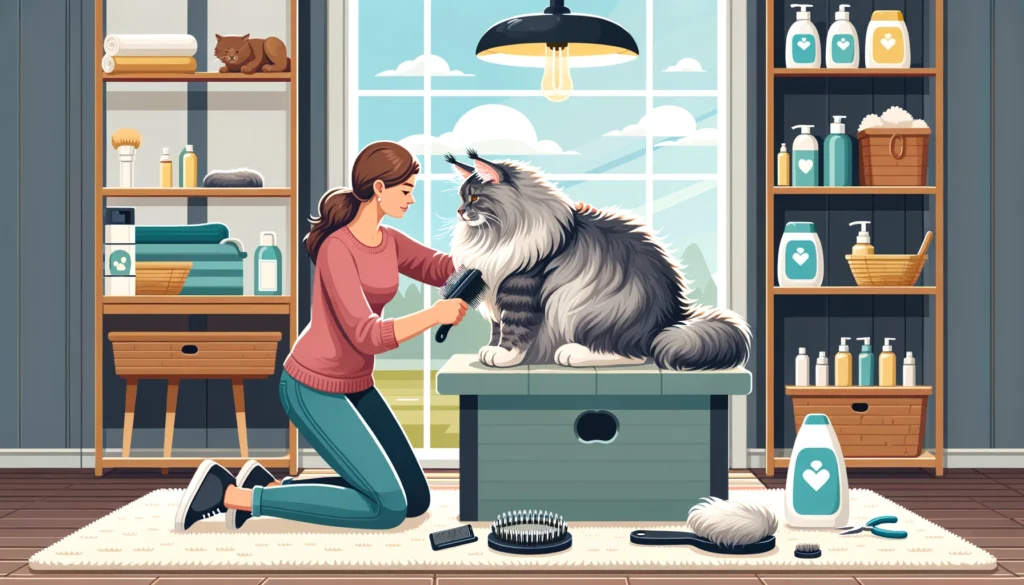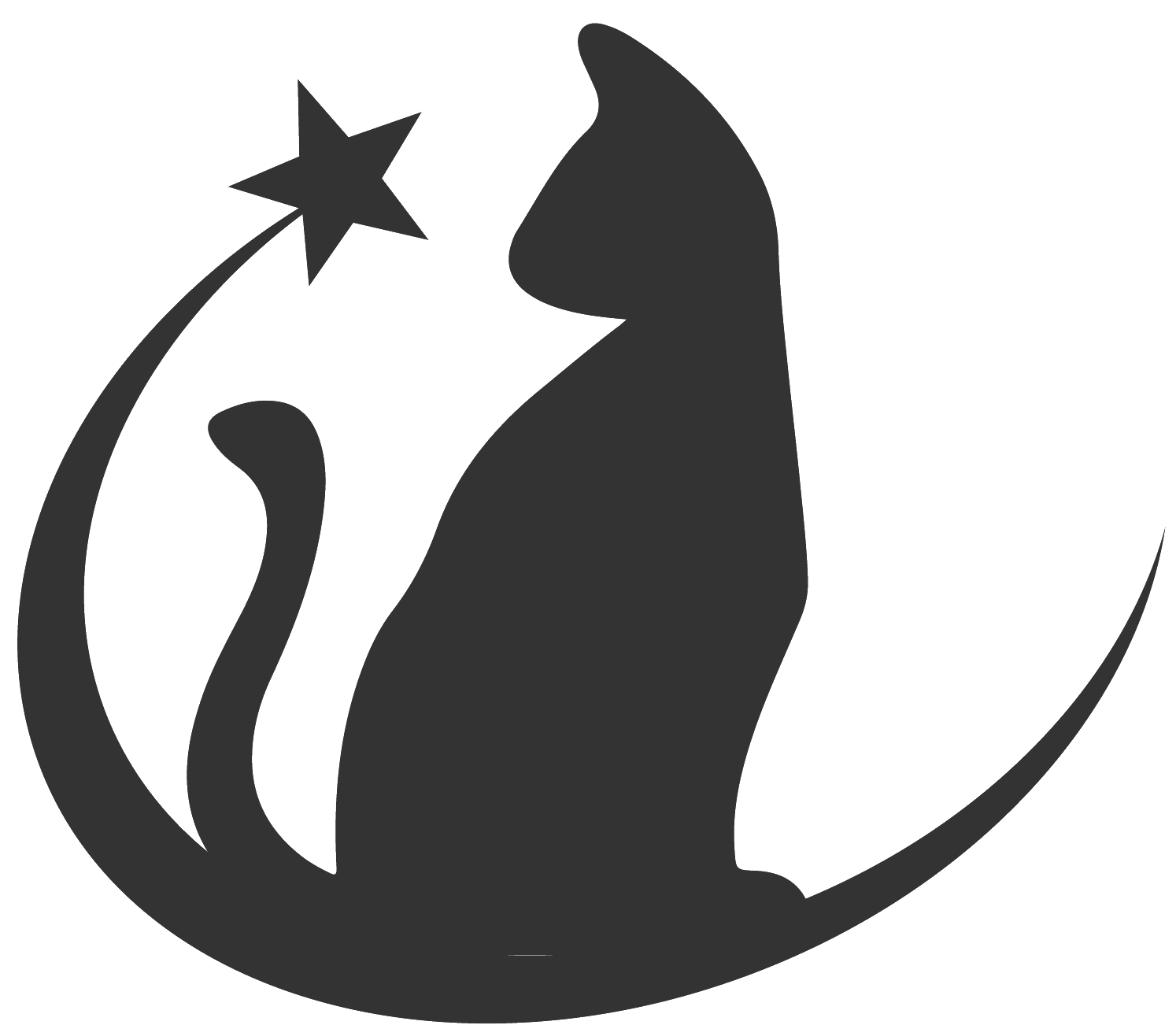
Essential Maine Coon Cat Care Tips for Optimal Health and Happiness
Maine Coon cats, known for their majestic appearance and friendly nature, require specific grooming and daily care to maintain their health and well-being. This comprehensive guide on Maine Coon cat care tips provides detailed advice on grooming, hygiene, and daily routines to ensure your Maine Coon thrives.
Introduction to Maine Coon Cats
Maine Coon cats are one of the largest domesticated cat breeds, renowned for their luxurious coats, tufted ears, and friendly demeanor. Originating from North America, these cats have adapted well to various environments, making them a favorite among pet owners. Understanding their unique characteristics is the first step in providing optimal care.
Understanding Maine Coon Fur
The Maine Coon’s fur is one of its most distinctive features. They have a dense, water-repellent coat that can range from medium to long in length. This fur consists of a fine, silky undercoat covered by longer guard hairs. Due to the nature of their fur, Maine Coons require regular grooming to prevent matting and keep their coat healthy.
Importance of Grooming for Maine Coons
Grooming is crucial for maintaining the health and appearance of a Maine Coon. Regular grooming helps to prevent tangles, mats, and hairballs, which can cause discomfort and health issues. Additionally, grooming sessions provide an opportunity to check for any signs of parasites, skin problems, or other health concerns.
Essential Grooming Tools
To effectively groom a Maine Coon, you will need a variety of tools. These include a wide-toothed comb, a slicker brush, a grooming rake, and nail clippers. Each tool serves a specific purpose, from detangling knots to removing loose fur. Investing in high-quality grooming tools will make the grooming process more efficient and comfortable for your cat.
Daily Grooming Routine
Incorporating a daily grooming routine can significantly benefit your Maine Coon. A quick brush each day helps to remove loose hair and prevent tangles. It also allows you to spend quality time with your cat, strengthening your bond. Daily grooming is especially important during shedding seasons when Maine Coons tend to lose more fur.
Weekly Grooming Tasks
In addition to daily brushing, there are several weekly tasks that contribute to your Maine Coon’s overall grooming regimen. These include a thorough brushing session, checking and cleaning their ears, and trimming their nails. Regular weekly grooming helps to keep your cat’s coat in top condition and prevents potential health issues.
Bathing Your Maine Coon
Maine Coons typically do not require frequent baths, but occasional bathing can be beneficial, especially if your cat gets into something dirty or has a skin condition. Use a gentle, cat-specific shampoo and ensure the water is lukewarm. Bathing can be a stressful experience for cats, so it’s important to handle them gently and calmly.
Dealing with Shedding
Shedding is a natural process for Maine Coons, but it can be managed with regular grooming. During peak shedding seasons, usually in spring and fall, increase the frequency of brushing to reduce loose hair and minimize hairballs. Using a grooming rake can help reach the undercoat and remove shed fur effectively.
Brushing Techniques for Maine Coons
Proper brushing techniques are essential for maintaining your Maine Coon’s coat. Start with a wide-toothed comb to gently detangle any knots, then use a slicker brush to remove loose hair and dirt. Always brush in the direction of hair growth to avoid causing discomfort. Regular brushing not only keeps the coat looking its best but also reduces shedding.
Maintaining Dental Health
Dental health is often overlooked in cats, but it is crucial for their overall well-being. Maine Coons are prone to dental issues, so regular brushing of their teeth is recommended. Use a cat-specific toothbrush and toothpaste to gently clean their teeth and gums. Regular dental check-ups with a veterinarian are also important.
Eye and Ear Care
Keeping your Maine Coon’s eyes and ears clean is part of their grooming routine. Gently wipe away any discharge from the corners of their eyes with a damp cloth. For ear care, use a cotton ball moistened with a vet-approved ear cleaner to clean the outer ear. Avoid inserting anything into the ear canal to prevent injury.
Claw Trimming and Maintenance
Regular claw trimming is essential for your Maine Coon’s comfort and to prevent damage to furniture. Use cat-specific nail clippers and trim just the tips of the claws, avoiding the quick, which can cause bleeding. If you’re unsure, ask your veterinarian for a demonstration on how to safely trim your cat’s claws.
Skin Health and Common Issues
Maine Coons can be prone to skin issues such as allergies and infections. Regular grooming helps to monitor their skin health. Look for signs of redness, irritation, or parasites like fleas. If you notice any unusual skin conditions, consult your veterinarian for appropriate treatment.
Feeding and Nutrition for Healthy Fur
A well-balanced diet is vital for maintaining a healthy coat. Maine Coons require a diet rich in high-quality protein and essential fatty acids. Foods that contain omega-3 and omega-6 fatty acids are particularly beneficial for their fur and skin. Consult your veterinarian to determine the best diet for your Maine Coon.
Hydration and Its Importance
Proper hydration is crucial for a Maine Coon’s overall health. Ensure your cat has access to fresh water at all times. Some Maine Coons prefer running water, so consider investing in a cat water fountain. Adequate hydration supports healthy skin and fur and aids in digestion.
Exercise and Play for Physical Health
Regular exercise is important for keeping your Maine Coon healthy and fit. Provide a variety of toys and engage in interactive play sessions to stimulate your cat both physically and mentally. Exercise helps to prevent obesity and supports muscle health, contributing to overall well-being.
Creating a Comfortable Living Environment
A comfortable living environment is essential for your Maine Coon’s happiness. Provide cozy resting areas, scratching posts, and climbing trees. Ensure your home is safe and free from hazards. A stress-free environment promotes better health and reduces anxiety in your cat.
Recognizing Signs of Health Issues
Being attentive to your Maine Coon’s behavior and physical condition can help you detect health issues early. Look for signs such as changes in appetite, lethargy, excessive grooming, or unusual behavior. Early detection and veterinary care can prevent minor issues from becoming serious health problems.
Seasonal Grooming Adjustments
Adjust your grooming routine according to the seasons. During warmer months, Maine Coons may shed more, requiring more frequent brushing. In colder months, ensure their coat remains clean and free from mats to provide adequate insulation. Tailoring grooming practices to seasonal changes helps maintain your cat’s comfort and health.
Handling and Reducing Stress During Grooming
Grooming can be a stressful experience for some cats. To reduce stress, start grooming sessions when your Maine Coon is relaxed. Use gentle, reassuring strokes and take breaks if your cat becomes agitated. Positive reinforcement with treats and praise can also help make grooming a more pleasant experience.
Using Professional Grooming Services
Sometimes, professional grooming services are necessary, especially for dealing with severe mats or grooming-related issues. Professional groomers have the expertise and equipment to handle challenging grooming tasks. Regular visits to a groomer can complement your at-home grooming routine.
Training Your Maine Coon for Grooming Sessions
Training your Maine Coon to tolerate grooming sessions can make the process easier for both of you. Start by gently handling your cat from a young age, gradually introducing grooming tools. Use positive reinforcement and patience to build a positive association with grooming.
Traveling with Your Maine Coon
If you need to travel with your Maine Coon, preparation is key. Invest in a sturdy, comfortable carrier and acclimate your cat to it before the trip. Bring familiar items like blankets and toys to provide comfort. Ensure your cat is secured and safe during travel to minimize stress.
Common Myths about Maine Coon Grooming
There are several myths about Maine Coon grooming that can lead to misconceptions. One common myth is that Maine Coons do not need frequent grooming because of their “self-cleaning” fur. In reality, regular grooming is essential to prevent matting and health issues. Educating yourself on the facts ensures better care for your cat.
FAQs
What is the best grooming routine for a Maine Coon?
A daily brushing routine combined with weekly tasks like ear cleaning and nail trimming is ideal for maintaining a healthy coat and overall well-being.
How often should I bathe my Maine Coon?
Bathing is not required frequently. Occasional baths every few months or as needed, especially if the cat gets dirty, are sufficient.
What type of brush is best for a Maine Coon?
A combination of a wide-toothed comb and a slicker brush works well. The comb helps detangle knots, while the slicker brush removes loose hair and dirt.
How can I reduce shedding in my Maine Coon?
Regular brushing, especially during shedding seasons, helps manage and reduce shedding. A healthy diet also supports a good coat condition.
Is it necessary to trim my Maine Coon’s claws?
Yes, regular claw trimming is important to prevent overgrowth and damage to furniture. Use cat-specific nail clippers and trim just the tips.
What should I do if I notice skin problems on my Maine Coon?
Consult your veterinarian if you observe any signs of skin problems such as redness, irritation, or parasites. Prompt treatment can prevent further complications.
Caring for a Maine Coon involves a commitment to regular grooming and a well-rounded daily care routine. By following these tips and being attentive to your cat’s needs, you can ensure your Maine Coon remains healthy, happy, and looking their best. Regular grooming not only maintains their majestic appearance but also strengthens the bond between you and your feline companion.
Sources:
